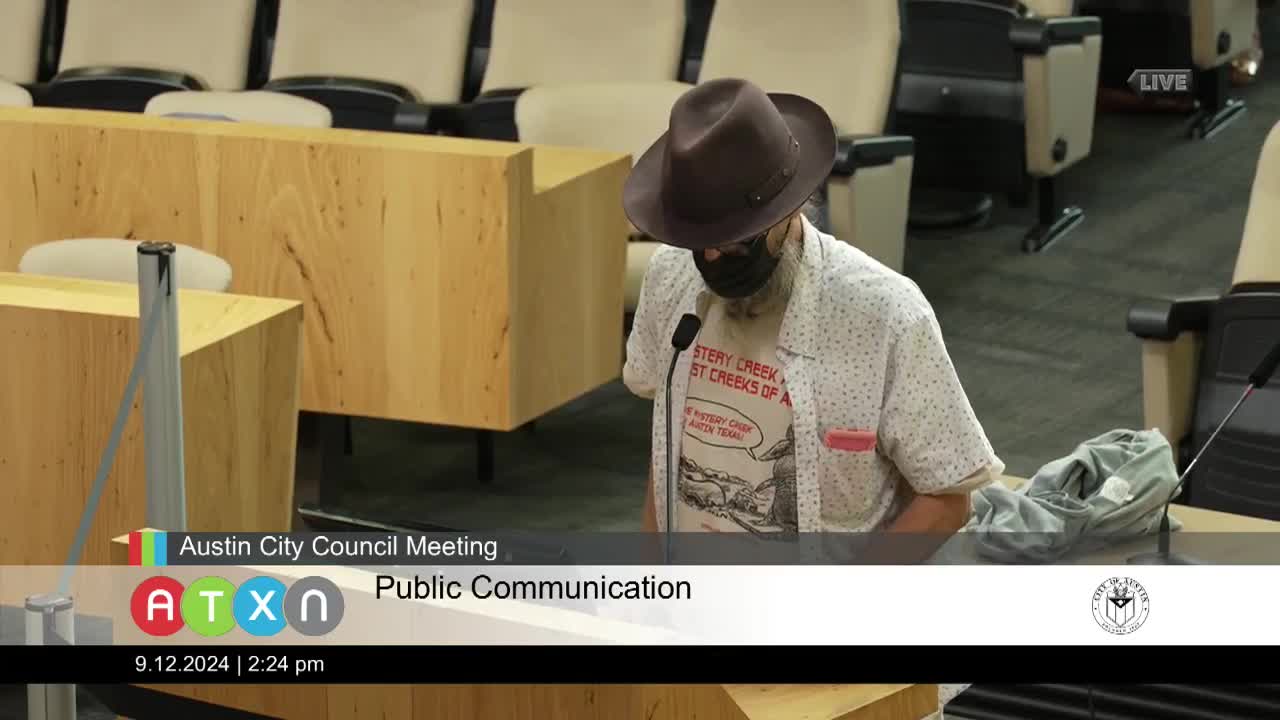Community Outcry Against Controversial Austin Development Plan
September 12, 2024 | Austin, Travis County, Texas
This article was created by AI summarizing key points discussed. AI makes mistakes, so for full details and context, please refer to the video of the full meeting. Please report any errors so we can fix them. Report an error »

During a recent city council meeting, community members voiced strong concerns regarding the current public notification process and the perceived exclusion of certain advocacy groups from local government discussions. Speakers emphasized that timely access to government proceedings is crucial for citizens and their advocates, arguing that without it, their causes become secondary to regaining participation in governance.
One speaker highlighted the interrelationship between municipal government and individual rights, asserting that groups not aligned with the council's agenda are marginalized. They expressed frustration over the council's focus on density growth and federal transportation grants, which they believe prioritize development over community needs and environmental considerations. The speaker lamented the loss of affordable housing options and the cultural identity of Austin, warning that the city risks losing its vibrant music scene due to rising costs and gentrification.
Concerns were also raised about the implications of proposed zoning changes, particularly the DB90 zoning, which allows for increased building heights and density. Critics argued that these changes disproportionately benefit developers while providing minimal community benefits, such as affordable housing. They called for a moratorium on DB90 applications until a thorough review of their impact on neighborhoods can be conducted.
Additionally, speakers pointed out the lack of adequate transportation planning and the need for better public transit options in suburban areas, arguing that simply increasing density in urban centers will not alleviate traffic congestion. They urged the council to consider alternative solutions, such as repurposing existing homes into multi-family units, rather than pursuing aggressive development strategies that may harm the community's character and environment.
The meeting concluded with a call for greater transparency and community engagement in the decision-making process, emphasizing that the council must prioritize the needs and voices of its constituents to foster a more inclusive and sustainable urban environment.
One speaker highlighted the interrelationship between municipal government and individual rights, asserting that groups not aligned with the council's agenda are marginalized. They expressed frustration over the council's focus on density growth and federal transportation grants, which they believe prioritize development over community needs and environmental considerations. The speaker lamented the loss of affordable housing options and the cultural identity of Austin, warning that the city risks losing its vibrant music scene due to rising costs and gentrification.
Concerns were also raised about the implications of proposed zoning changes, particularly the DB90 zoning, which allows for increased building heights and density. Critics argued that these changes disproportionately benefit developers while providing minimal community benefits, such as affordable housing. They called for a moratorium on DB90 applications until a thorough review of their impact on neighborhoods can be conducted.
Additionally, speakers pointed out the lack of adequate transportation planning and the need for better public transit options in suburban areas, arguing that simply increasing density in urban centers will not alleviate traffic congestion. They urged the council to consider alternative solutions, such as repurposing existing homes into multi-family units, rather than pursuing aggressive development strategies that may harm the community's character and environment.
The meeting concluded with a call for greater transparency and community engagement in the decision-making process, emphasizing that the council must prioritize the needs and voices of its constituents to foster a more inclusive and sustainable urban environment.
View full meeting
This article is based on a recent meeting—watch the full video and explore the complete transcript for deeper insights into the discussion.
View full meeting
